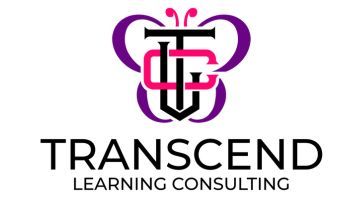If Growth is the Goal, a Coaching Culture Is Not the End-game, a Culture for Adult Learning Is
Oct 06, 2025
Reading time: 5-6 mins
Coaching and the Culture That Sustains It
Coaching is one of the most powerful levers to improve instruction and drive teacher development. When done well, it transforms practice, builds confidence, and accelerates growth for teachers and students.
Here’s the catch: coaching doesn’t exist in a vacuum. The culture in which it lives determines whether it becomes a catalyst for growth or a compliance exercise that limits potential.
Too often and understandably, our focus is on creating a culture for learning for students. However, if a school’s culture doesn’t also support what adults need to learn and grow, coaching efforts lose their impact. Without a supportive adult learning culture, even the best coaching practices risk becoming compliance checkboxes rather than drivers of growth.
The Problem: When Coaching Slips Into Compliance
Coaching should empower reflection, growth, and change not enforce routines. When the focus becomes doing coaching instead of learning through coaching, it loses its effectiveness and impact.
When teachers participate out of obligation rather than curiosity, when conversations stay surface-level, or when progress is measured only by outcomes rather than insight, coaching shifts from transformation to transaction.
From Just a Coaching Culture to an Adult Learning Culture: Why the Shift?
Just as a strong learning culture makes teaching easier and drives student growth, a culture for adult learning is pivotal for effective coaching and sustained teacher growth and development.
The same intentionality we bring to designing classroom conditions must also be applied to designing organizational conditions that allow the adults responsible for student success to thrive.
As instructional leaders, while you can’t force people to learn or grow and you can’t demand reflection or mandate curiosity, you can create the conditions that make them possible.
Six Key Elements to Start Making the Shift
Here’s what adult learners need to learn and grow grounded in what research tells us about transformational adult learning.
1. Safety to learn, grow, and change
People don’t learn when they feel unsafe they learn when they feel respected, heard, and valued. Safety is a prerequisite for learning. Psychological safety, popularized by Amy Edmondson, is essential for risk-taking, reflection, and honest dialogue. When adult learners don’t feel safe, the brain shifts into self-protection which limits access to the processing power needed for deep learning.
In a culture for adult learning, trust is the foundation. Adults feel safe to be vulnerable, explore uncertainty, and make mistakes without fear of judgment. Creating this safety means honoring the complexity of the human experience in the learning and change process.
2. Curiosity and inquiry drive learning
In a culture for adult learning, curiosity and inquiry drive learning, not compliance and directives. Adult learners are regularly invited to reflect, question assumptions, and extract meaning from their experiences to improve practice and student outcomes.
Learning becomes a continuous cycle of inquiry: asking questions about teaching and learning, reflecting, taking action, and refining. This process creates awareness, turning experiences into insight and insight into opportunities for growth.
3. Shared purpose and collective learning
In a culture for adult learning, educators are united by a shared purpose and vision for improved teaching and learning outcomes and to create a future that benefits all. When educators engage in the collective pursuit of this goal, they are able to see how their individual growth contributes to something greater.
When educators work together to strengthen instruction, share best practices, and problem solve instructional challenges, it builds collective efficacy and creates a deeper sense of purpose and hope.
4. Adult learning is valued and modeled
Is learning for adults truly valued in your school or organization, not just in words, but in practice? When leaders model curiosity, vulnerability, and continuous learning, they communicate that learning isn’t optional, it’s who we are. "Organizations learn when their members do and that starts with leaders who lead as learners", (Senge,1990)
When professional learning and growth is intentional, normalized, and regularly celebrated, it shifts from being an isolated event to to a habit of practice.
5. Opportunity for self-direction and personal mastery
Adults are self-directed learners who thrive when given both autonomy and support. A strong learning culture provides structures that encourage ownership while allowing space for choice and initiative.
Personal mastery develops when educators set their own growth goals, monitor progress, and apply new learning with purpose. When adults are trusted to steer their growth, they not only strengthen their practice but also model what it means to be lifelong learners.
6. Relevance and application
Another principle of adult learning is that adults are goal-oriented learners who need to see immediate connections between new learning and their daily practice, (Knowles, 1984).
When coaching and professional learning are relevant, meaningful, and practical, motivation increases. Relevance transforms learning into a tool for impact that can directly improve, teaching, learning, and reuslts for students.
Bonus: Reflection and feedback as shared practice
Deep learning happens in the space between reflection and feedback, powerful drivers of growth in coaching, professional learning, and a thriving adult learning culture. Done well they can turn experience into insight and insight into sustained change. When done poorly, they erode trust, create resistance, and limit learning.
Reflection invites adult learners to pause, think critically, and make meaning of their experiences, building self-awareness and ownership. Feedback, when reciprocal and grounded in compassion and trust, becomes a dialogue not a judgment.
Together, reflection and feedback keep learning continuous, purposeful, and human-centered which are defining markers of an adult learning culture.
Sources:
-
Knowles, M. (1984). The Adult Learner: A Neglected Species.
-
Edmondson, A. (2018). The Fearless Organization: Creating Psychological Safety in the Workplace for Learning, Innovation, and Growth.
-
Senge, P. (1990). The Fifth Discipline: The Art & Practice of the Learning Organization.
Stay connected!
Join our Beyond Coaching newsletter to receive valuable insights, pro tips, and actionable strategies to sharpen your personal leadership skills and coaching practice.
We hate SPAM. We will never sell your information, for any reason.


